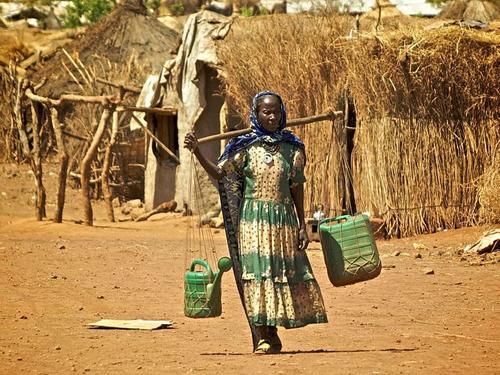Women play a central part in the provision, management and safeguarding of water.
It is widely acknowledged that women play a key role in collecting and safeguarding water for domestic and - in many cases - agricultural use, but compared to men they have a much less influential role in management, problem analysis and in the decision making process related to water resources. Attention to gender is essential to sound development practices and stands at the heart of an economic and social progress. Development results cannot be maximized and sustained without explicit recognition that every policy, program or project affects women and men differently.
Addressing gender as a cross-cutting goal requires that women's views, interests and needs shape the development agenda as much as men's, and that the development agenda supports progress towards more equal relations between women and men. Gender needs should be part of the overall policy framework, which can ensure that policies, programs and projects address the differences in experiences and situations among women and men. Equal participation in social and political issues involves women's equal right to articulate their needs and interests as well as their vision of society and to shape decisions affecting their lives. Their ability to do this can be strengthened through community organizations and institutions and establishing participatory capacity. (GWP 2012c)
